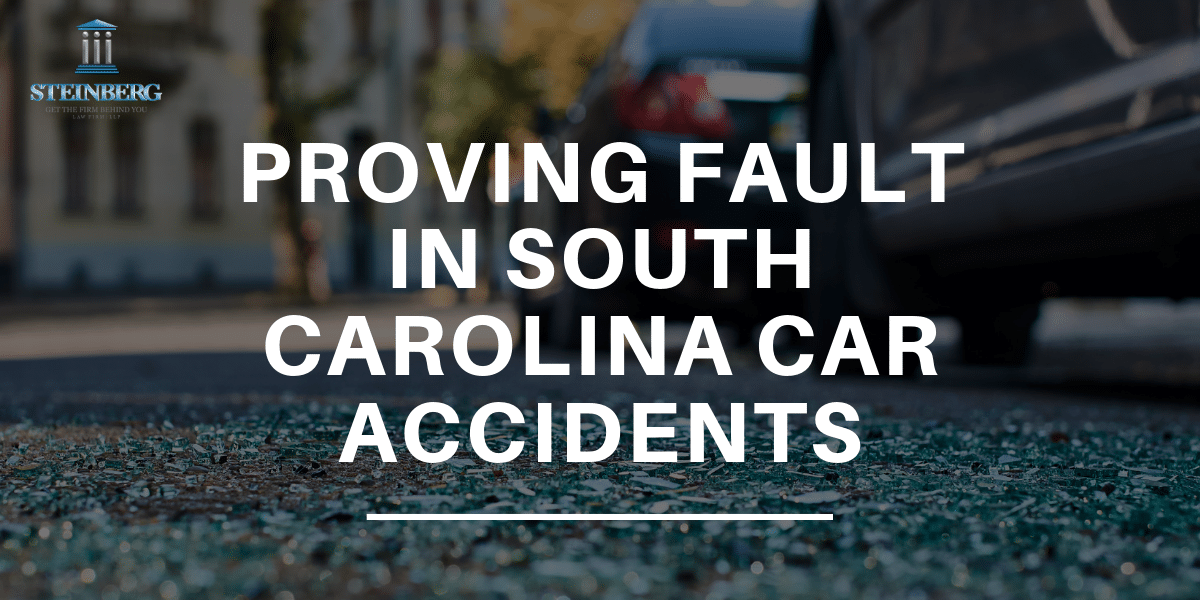
Proving Fault in South Carolina Car Accidents
South Carolina is a fault state when it comes to car accidents, which means you need to know several things right up front. The first thing you need to know is that the driver determined to be at-fault is responsible for all of the damages caused by the collision, which include property damages and personal injuries. In South Carolina a plaintiff has three years to file a complaint for damages from a collision, whether those damages are personal injury or property damages.
To prove the other driver was at-fault you need to be able to prove the following:
- Duty – that the other driver had a duty to behave according to a certain standard of care
- Breach – that the other driver violated the standard of care the duty of care to you
- Causation – that all damages you seek compensation for were incurred as a direct result of the negligence of the other driver
- Damages – there needs to damages caused by the breach of duty
Proving negligence/liability may be difficult if multiple drivers made mistakes, thus making it hard to establish the accident’s cause. If you cannot prove negligence, you will not be able to determine fault in a South Carolina auto accident.
Negligence according to South Carolina law
There is more than just one type of negligence in South Carolina. There is:
- Negligence – defendant failed to act thus causing harm when under similar circumstances a reasonably careful person would not as the same
- Per se negligence – when a defendant violates the statue, ordinances or regulation and someone else is hurt as a result
- Modified comparative negligence – provided you are not more than 50 percent at-fault for an accident, you can likely still file a claim for compensation. If you are partially at-fault, but less than 50 percent, then damages awarded may be reduced by the percentage of fault assigned to you.
Common causes of car accidents
The South Carolina Department of Public Safety indicates auto accidents are commonly caused by:
- Not paying attention to traffic signals
- Texting and driving
- Driving while distracted (grooming, eating, rubbernecking, dealing with children and/or pets)
- Fatigued driving
- Failing to yield the right of way
- Speeding
- Running a stop sign
- Tailgating
- Drunk driving
- Drugged driving
- Traveling too fast for the road conditions and weather
To help your Steinberg Law Firm car accident attorney gather evidence to file a personal injury lawsuit, it is helpful if you collect as much proof as you can at the accident scene, if you are physically able to do so. Collect evidence such as eye witness accounts, pictures of the scene, the other drivers information, license plate numbers, make and model of vehicles involved, video taken with your cellphone or a dashcam or if you do not have a cellphone or dashcam, check to see if any nearby businesses may have security footage available.
Although there is typically a police report generated when an accident occurs, it is important to note that this report cannot be used in court. The law states police reports cannot be entered as evidence to recover compensation. The report may offer guidance for insurance companies to determine what sort of a claim payout they can provide after an accident. If police did not attend the accident, you need to fill out a Department of Motor Vehicles form (FR-10) within the first 15 days of the collision.
In order to determine fault, the cost of injuries, other losses and the scope of an accident, an investigation is necessary. An experienced Steinberg Law Firm car accident attorney and their investigations team usually carry out the investigation.
If you suffered an injury in a car accident, call a car accident attorney at the Steinberg Law Firm 24/7 at 843-720-2800, make an appointment at www.steinberglawfirm.com, or visit our offices in Charleston, Goose Creek or Summerville. The initial consultation is free.




















